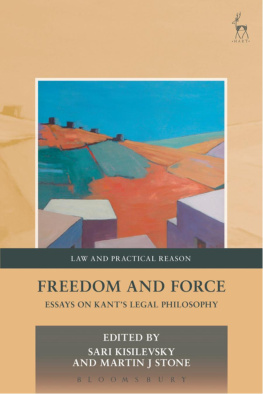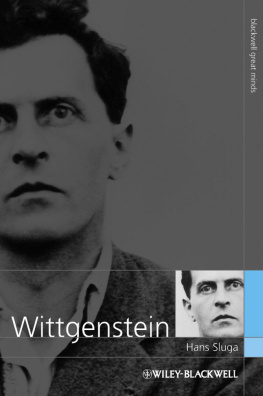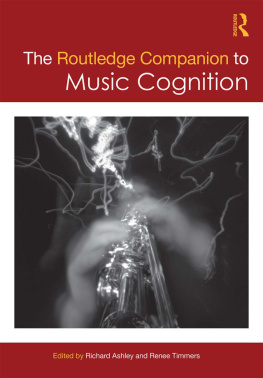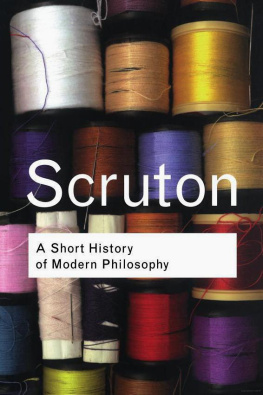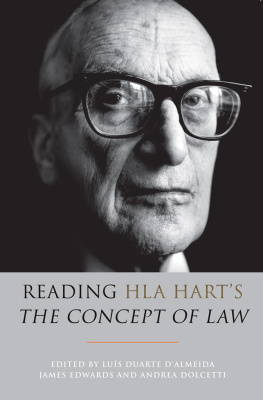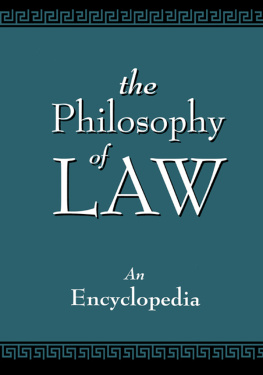A Life of H.L.A. Hart:
The Nightmare and the Noble Dream
Nicola Lacey
(p.iv) 
- Great Clarendon Street, Oxford OX2 6DP
- Oxford University Press is a department of the University of Oxford
- It furthers the Universitys objective of excellence in research, scholarship,
- and education by publishing worldwide in
- Auckland Cape Town Dar es Salaam Hong Kong Karachi
- Kuala Lumpur Madrid Melbourne Mexico City Nairobi
- New Delhi Shanghai Taipei Toronto
- Argentina Austria Brazil Chile Czech Republic France Greece
- Guatemala Hungary Italy Japan Poland Portugal Singapore
- South Korea Switzerland Thailand Turkey Ukraine Vietnam
- Oxford is a registered trade mark of Oxford University Press
- in the UK and in certain other countries
- Published in the United States
- by Oxford University Press Inc., New York
- The moral rights of the authors have been asserted
- Database right Oxford University Press (maker)
- First published 2004
- Published in paperback 2006
- All rights reserved. No part of this publication may be reproduced,
- stored in a retrieval system, or transmitted, in any form or by any means,
- without the prior permission in writing of Oxford University Press,
- or as expressly permitted by law, or under terms agreed with the appropriate
- reprographics rights organization. Enquiries concerning reproduction
- outside the scope of the above should be sent to the Rights Department,
- Oxford University Press, at the address above
- You must not circulate this book in any other binding or cover
- and you must impose the same condition on any acquirer
- British Library Cataloguing in Publication Data
- Library of Congress Cataloging in Publication Data Lacey, Nicola.
- A life of H. L. A. Hart: the nightmare and the noble dream / by Nicola Lacey.
- p. cm.
- Includes bibliographical reference and index.
- ISBN 019927497-5 (alk. paper)
- 1. Hart, H. L. A. (Herbert Lionel Adolphus), 1907 2. LawPhilosophyHistory20th century. 3. LawyersEnglandBiography. I. Title.
- K230.H3652.L33 2004
- 340'. rdc222004011031
- Typeset by Newgen Imaging Systems (P) Ltd., Chennai, India
- Printed in Great Britain
- on acid-free paper by Biddles Ltd., Kings Lynn
- Bidddles Ltd., Kings Lynn
- ISBN 0199274975 9780199274970
- ISBN 019920277X (Pbk.) 9780199202775 (Pbk.)
Dedication
(p.v) For Jenifer Hart
Epigraph
(p.vi) And there goes Professor Hart striding enlightened by the years through the doorway and arcade he built (in his mind) and knowshe too saw the ruins of Yucatn once
Allen Ginsberg, Sather Gate Illumination, 1955
Some discouragement, some faintness of heart at the new real future which replaces the imaginary, is not unusual, and we do not expect people to be deeply moved by what is not unusual. That element of tragedy which lies in the very fact of frequency has not yet wrought itself into the coarse emotion of mankind; and perhaps our frames could hardly bear much of it. If we had a keen vision and feeling of all ordinary human life it would be like hearing the grass grow and the squirrels heart beat, and we should die of that roar which lies on the other side of silence. As it is, the quickest of us walk about well wadded with stupidity.
George Eliot, Middlemarch, 1878
The rationalism of Jews is a passionthe passion for the universal. If they have chosen this rather than something else, it is in order to fight the particularist conceptions that set them apart. Of all things in the world, reason is the most widely shared; it belongs to everybody and to nobody; it is the same to all. If reason exists, then there is no French truth or German truth, there is no Negro truth or Jewish truth. There is only one Truth, and he is best who wins it. In the face of universal and eternal laws, man himself is universal. There are no more Jews or Poles; there are men who live in Poland, others who are designated as of Jewish faith on their family papers, and an agreement is always possible among them as soon as discussion bears on the universal.
Jean-Paul Sartre, Rflexions sur la Question Juive, 1946
(p.ix) Acknowledgements
I have accumulated mountainous debts of gratitude while working on this book. First and foremost, my deepest thanks go to Jenifer Hart, without whose honesty, courage, and trust this book could not have been written. This is not an authorized biography, in the sense that Jenifer Hart did not read it before publication: she did, however, give me indispensable assistance. Quite apart from her willingness to talk openly and at length to me over the last four years, and to give me access to Herbert Harts papers and to some of her own diaries, the work which she did in gathering, organizing, and doing her own research on Herbert Harts papers was of inestimable help to me. I should also like to express my deep thanks to Joanna Ryan, Adam Hart, and Charlie Hart, all of whom have been unfailingly helpful, open, and encouraging, and each of whom read and gave detailed and important comments on a draft. I am more grateful than I can say for the generosity of these four people.
Beyond Herbert Harts immediate family, many of his friends, colleagues, and students gave me invaluable information in interviews: Professor Brian Barry; President Aharon Barak of the Israeli Supreme Court; Professor Vernon Bogdanor; Professor Peter Campbell; Lt.-Col. Richard Camrass VC; George Cawkwell; Professor Hugh Collins; Mrs. Barbara Dupee; Professor Ronald Dworkin; Professor Yehuda Elkana; Justice Izaak Englard; Professor Marianne Fillenz; Professor John Finnis; Professor George Fletcher; Mrs. Jean Floud; Professor Ruth Gavison; Professor Martin Golding; Professor James Griffin; Professor Peter Hacker; Sir Stuart Hampshire; Justice Dyson Heydon; Justice David Hodgson; John Hart; Lennie Hoffmann; Professor Tony Honor; Professor Donald Horwitz; Mary Jay; Professor Harry Judge; Justice Michael Kirby; John Lucas; Professor Herbert Morris; Professor Richard Mulgan; Henry Myers; the late Professor Sir Barry Nicholas; Professor Gerald Postema; Professor Joseph Raz; Professor Jonathan Re; Professor Graham Richards; Professor Alan Ryan; Professor Sir Peter Strawson; Professor David Sugarman; Professor Bob Summers and Dorothy Summers; Professor Colin Tapper; Dr. John Tasioulas; Professor William Twining; Professor Jeremy Waldron; the late Bill (William Charles) Wentworth; the late Professor Sir Bernard Williams; the late Lord Wilberforce; Adrian Zuckerman. I should like to thank all of these people not only for their generosity with their time but also for their willingness to talk so frankly and, in many cases, to answer follow-up questions.
(p.x) I would also like to acknowledge the kindness of a number of people who helped me in particularly important ways. Caroline Dalton gave me assistance not only with the Cox archive at New College but also in tracing a miscellany of questions about the history of Oxford University; Dr. Henry Hardy was enormously generous in providing and discussing relevant materials from the Isaiah Berlin archive, and in checking my citations with meticulous care; Professor Tony Honor provided unstinting support and important material on jurisprudence teaching at Oxford in the 1950s; Professor Hermione Lee gave me invaluable advice about writing biography as well as much-appreciated encouragement; Professor Brian Simpson patiently answered dozens of email queries and provided me with a large amount of useful material, including many papers relating to Abraham Harari; Professor David Sugarman generously gave me access to an unpublished interview with Herbert Hart in 1988; Professor Robert Summers sent me extracts from his personal diaries containing vivid descriptions of conversations with Herbert Hart; Professor Stanley Paulson gave me important bibliographic assistance and invaluable advice about Hans Kelsen; Professor John Hall generously sent to me two letters from Ernest Gellner to Herbert Hart which he had come across in the course of his work on Gellners biography, as well as making time for a helpful discussion; Professor Frances Olsen tracked down Herbert Harts annotated copy of Webers writings on law and economy in the Hebrew University Library; Miriam Schatz-Sharon of the Hebrew University Library gave me endless help in tracing the complete list of the Hart bequest through the complexities of the electronic catalogue; Dr. John Tasioulas saved me hours of labour by giving me access to his typed transcript of Herbert Harts working notebook for


